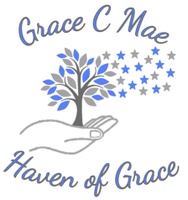
May is Mental Health Awareness Month. The National Alliance on Mental Health estimates that one in five adult Iowans live with some form of mental illness. Dr. Patricia Gilbaugh, founder and Executive Director of Grace C. Mae Advocate Center in Washington, spoke with KCII News this month about stigma, other challenges in the field and the services that Grace C. Mae has to offer. “We have seen a huge decline in our system. We don’t have enough providers. The demand is much too high. It’s increased by three to four times more than it was a year ago. The shortage of providers is compounding that. Normally when people finish their degree they don’t want to stay in the state of Iowa. Access to service is a huge barrier. You may have to drive two or three hours to get to one. Insurance premiums are really high, by the time you pay for your premiums and have a $4,000 deductible, that’s an additional cost. We would really love to see some work being done on the legislative side. Stigma is really huge. It’s the idea that you have something wrong with you if you say that you have depression or are having flashback memories from trauma. The focus is so much on what’s ‘wrong’ with you instead of saying ‘what happened to you’. I think if we changed the way we talk about things, it would have a different connotation. Therapy is our primary service here. Individual, family, outpatient based. We also have behavioral health intervention service and non-traditional approaches to treatment including holistic and non-medicinal approaches.”
According to Mental Health America (MHA), Iowa ranked 15th in the United States in care accessibility for patients. If you or someone you know is dealing with mental health related issues, reach out to Grace C. Mae Advocate Center at Gracecmae.org. The National Suicide Prevention Lifeline is available 24 hours a day at 800-273-8255 with online chat services also available. Mental Health Awareness month began in 1949, promoted by MHA.

